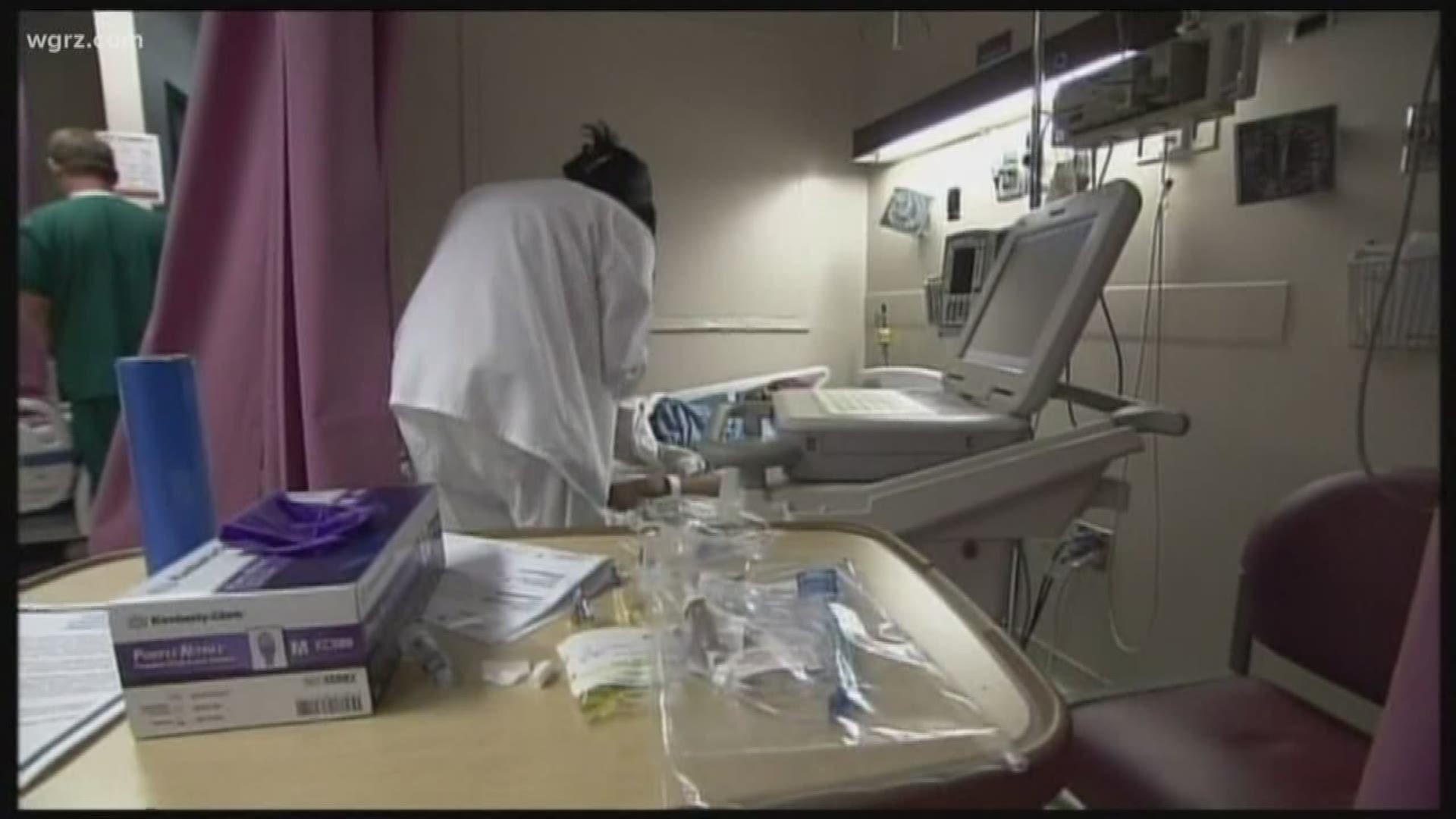ALBANY -- New York nurses' complaints about overtime hours have not been properly handled, a report Monday said.
An audit from state Comptroller Thomas DiNapoli found the state Department of Labor has not been investigating nurses' overtime complaints as they should be.
“Patients need care around the clock, and nurses are often required to stay and work extra hours,” DiNapoli said in a statement.
“Chronic overtime and longer shifts for nurses need to be watched closely by the state so patient care is not jeopardized, nurses are not overworked and employers are complying with the law."
From January 2015 to May 2017, the Department of Labor’s Division of Labor Standards completed 186 investigations of 540 complaints about possible overtime law violations.
Since 2009, there has been a law placing restrictions on the number of consecutive hours that nurses can work.
The law does not allow health-care employees to force mandatory overtime on nurses unless there is a situation such as a declared state of emergency.
Nurses or their union leaders can file a mandatory overtime complaint if they feel an employer has violated an overtime law.
But the average length of time it took for a case to be initiated after a complaint was 42 days in private and local facilities and 57 days in state agencies, according to the audit.
That's part of the problem, the audit said: The Department of Labor does not have a specific time frame for addressing overtime complaints.
Auditors, for example, looked at a sample of closed cases. The sample of 23 cases addressed 207 complaints.
In 33 of the 165 complaints from state agency facilities, the Department of Labor was found by auditors to have taken the word of the facilities that no mandatory overtime had occurred on the complaints date.
But there was no documentation was provided to prove that no overtime violations had not been made.
Another issue found by auditors was that in a number of complaints, investigations would often end and the person who filed the complaint was not notified.
That was the complaint in 128 of the 207 complaints, the audit contended.
Also, in 10 of the 23 cases, there was no record of the division’s decision.
There was no immediate comment from the labor department.
In response attached to the audit, though, the Department of Labor noted that all of the cases were completed in under a year.
The Department of Labor said it would designate staff to investigate complaints and have expanded investigator training procedures, as well as expanded the ability to better track cases.
DiNapoli said there are currently no penalties or fines for employers that are found to have violated the overtime laws, according to the audit.
After the audit, the comptroller recommended the Department of Labor establish ways for nurse overtime complaints to be handled in a timely manor.

